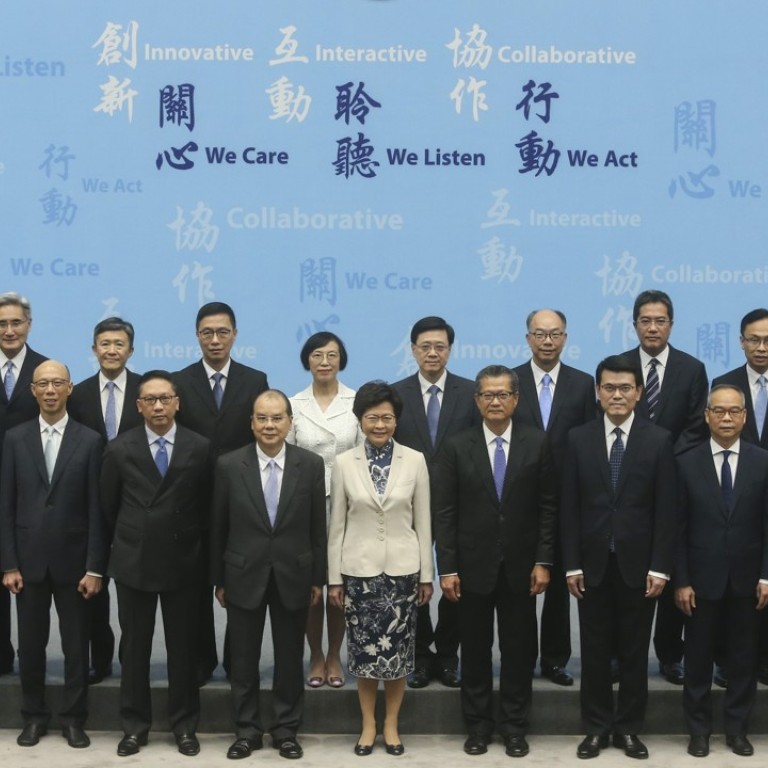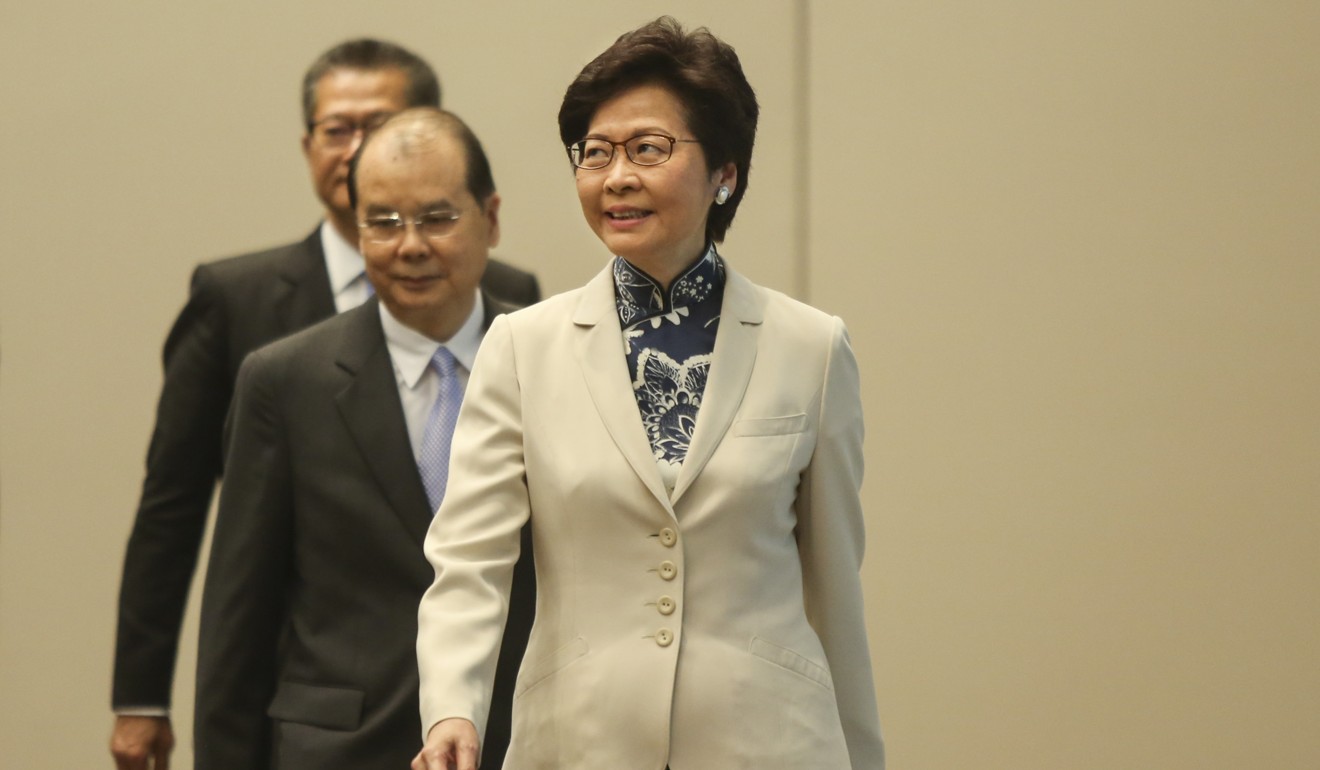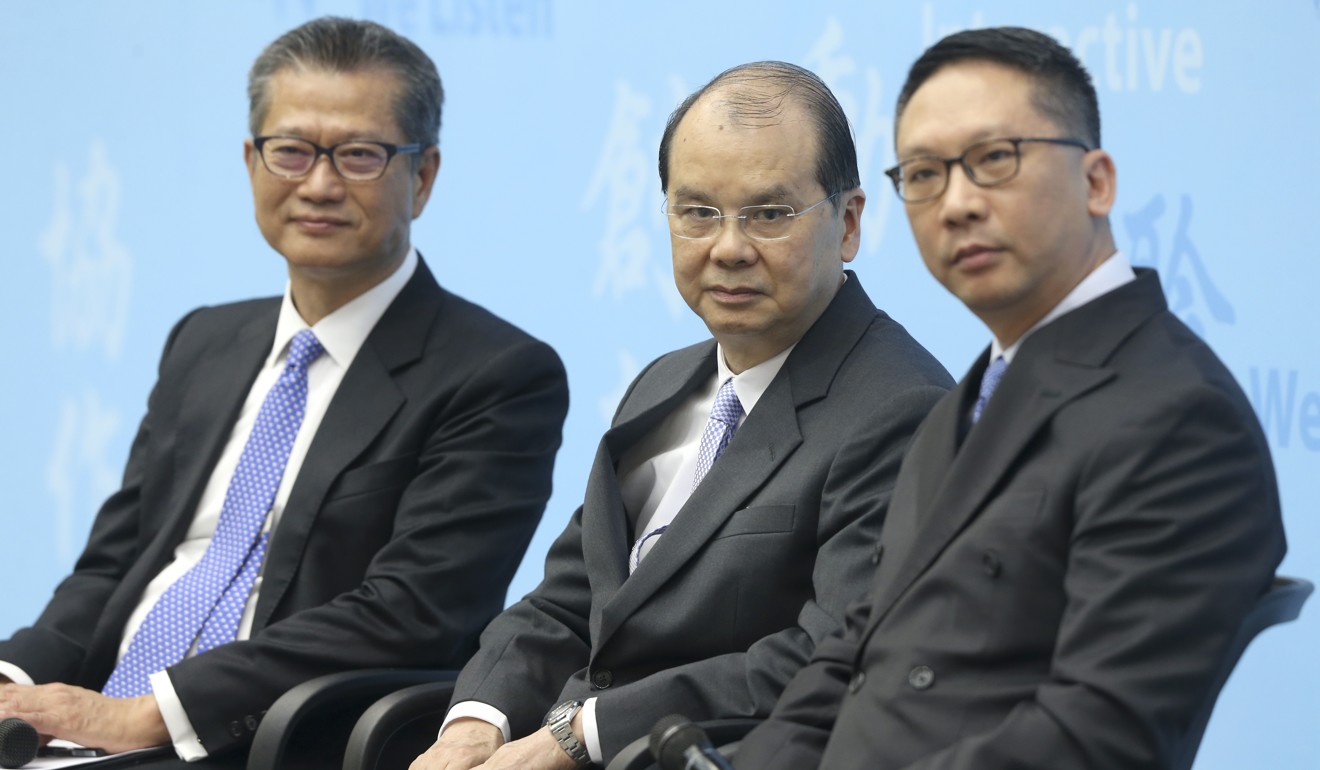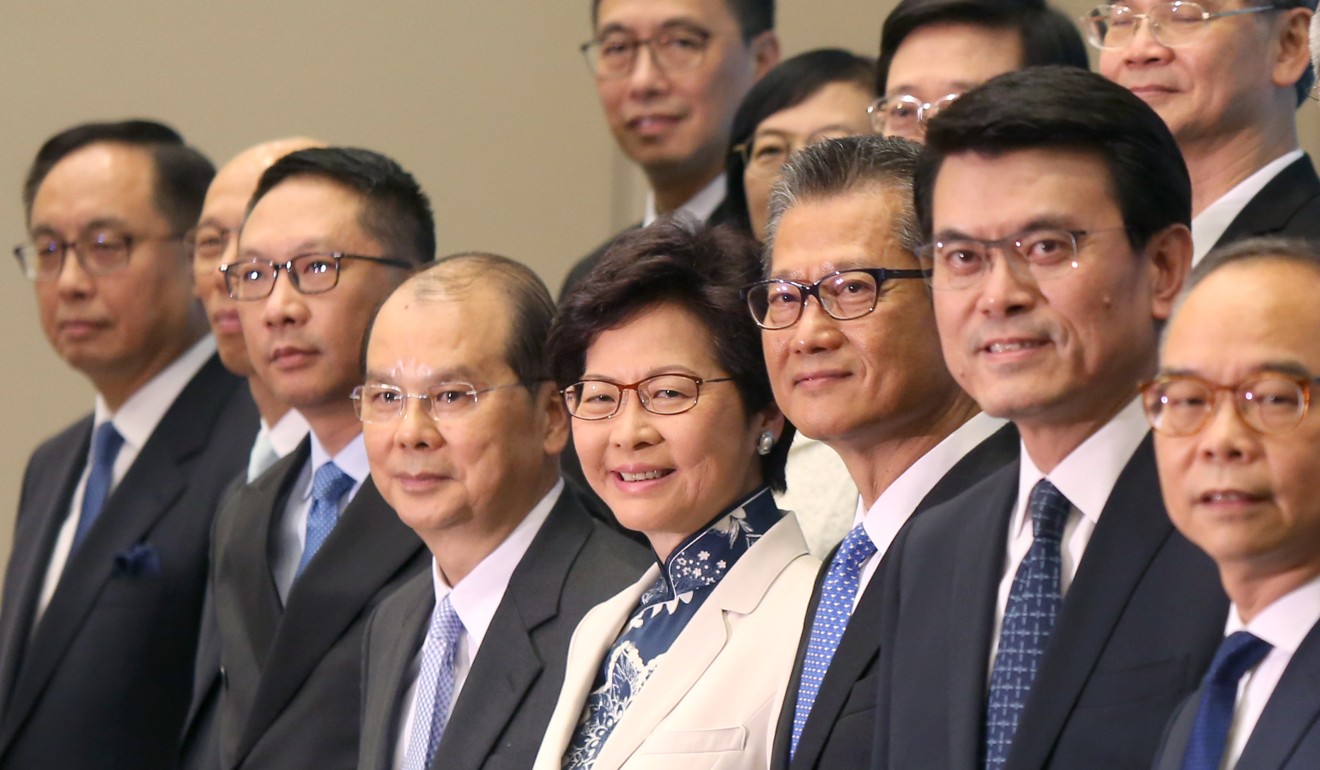
Carrie Lam unveils her ‘ideal team’ of mostly familiar faces
Incoming Hong Kong leader waves aside questions on whether central government turned down her first choices for ministerial posts
Introducing her team to the media after the central government approved and announced the appointments, Lam conceded that rather than the new talent she had promised, it mostly comprised incumbents and veteran bureaucrats. But she praised them as “passionate, capable and committed”.
“Though some will say my governing team consists of familiar faces, I wish to say they all agree with my new style of governance,” she said. “Officials on fiscal matters have no disagreement with my new philosophy on public finance management.
“Apparently people say there is no pleasant surprise. This also means no shock. This will be a stable team, a team of action.”

Of her 16 ministers, six are incumbents, including the top three principal secretaries – for administration, finance and justice.
Rimsky Yuen Kwok-keung, remaining as justice secretary, would not confirm reports he might not complete a five-year term and could leave after sorting out law enforcement issues for a cross-border railway project.

Eight others are internal promotees – four deputy ministers will now become heads of their bureaus and four civil servants have been elevated to ministerial rank as political appointees.
The only new face, who could arguably be held up as an example of including opposition figures, is Law Chi-kwong, a founding member of the Democratic Party and a social-policy scholar.

As for the lack of young faces in the line-up, Lam said principal officials required experience.
Lam would not be drawn into whether Beijing had turned down some of her original picks. “All the appointees today were nominated by me. They have the trust of the central government. They form my ideal team,” she said.
“But because a past attempt caused great controversy, I will first strive to create favourable conditions to enable us to handle [the matter].”
Widespread public opposition forced the government to scrap the last attempt to enact the legislation in 2003.
“We need to help our young people understand the country better,” she said. “I believe people will agree we should use different methods to develop in our youth a national identity, affection for Hong Kong, and a global vision.”
Commentator and adviser Professor Lau Siu-kai said Lam’s team looked “conservative” and it would depend on her own will to usher in the reform and changes she had promised.


